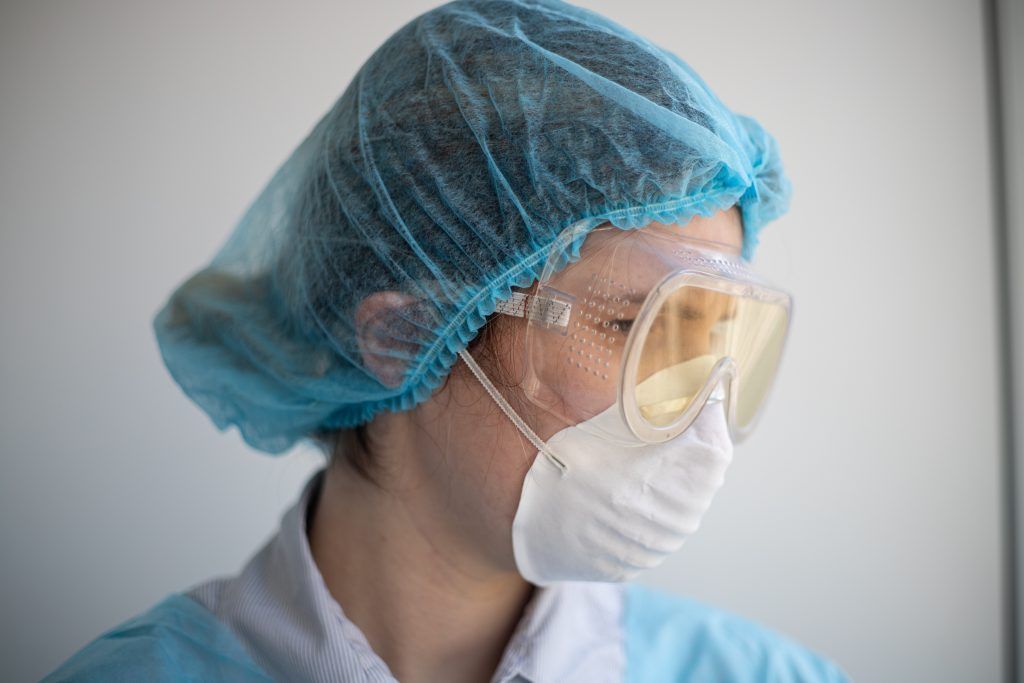
EDITORS NOTE: Healing Hands is an ongoing series featuring the personal stories of health care workers who spend their days on the front lines of the COVID-19 pandemic.
It was mid-March and the coronavirus pandemic had just started showing its ugly head in Pennsylvania. Cases were creeping into hospital emergency rooms and residence halls, but limited testing and a dearth of information meant proper protective equipment was lacking. Though they didn’t know it yet, nurses like Christine were being exposed.
Christine, who spoke to On the PULSE on condition of anonymity, works for a southwestern Pennsylvania hospital network and remembers the day she received a call from her boss telling her she had treated a patient diagnosed with COVID-19.
She took a brave approach.
“I’m sure I would get scared very quickly if I weren’t feeling well,” Christine said. “But I was feeling OK. I’m young.”
After testing negative, Christine returned to work. But contracting the virus was not what ultimately had the one-year nursing veteran worried. Instead, it was the possibility of unknowingly spreading the virus to patients at the hospital.
When to test
At first, patients were in the hospital for a few days before someone would say, “Hey, we should get them tested,” she said.
Long turnaround times and limited test kits meant that hospital staff originally had to be selective with who was tested, meaning that some had to go without a test even though they had shown a few of the key symptoms, such as cough or fever.
Each case was discussed with a doctor, and testing was limited to patients who had recently traveled abroad or otherwise came into contact with someone who had the virus.
The delay in testing meant many health care workers were exposed to the virus. Many of Christine’s coworkers weren’t as lucky as she was.
Between 60 and 80 employees in her network have tested positive so far.
Looking back now, Christine realizes how far she and her colleagues have come. Testing is now done in the emergency room, and a separate wing of the hospital is dedicated to coronavirus patients.
“They streamlined the diagnosis process for us,” Christine said, commending her network for keeping open lines of communication as procedures changed and new information came out daily.
An emotional drain
As the weeks went on, adapting to a new daily normal took a toll.
In a career that is built around efficiency, Christine found herself spending more time with individual patients who might not have needed as much treatment, but required additional emotional support.
Suddenly the mediator between patients and their families, Christine began spending a lot of time on the phone, relaying diagnosis information and possible treatment plans.
“Families are highly anxious and they are highly needy,” Christine said. “Each phone call is taking up a lot of time.”
And the patients, especially those who do not have COVID-19, are doing everything they can to get out of the hospital. The situation is taking its toll on them, Christine said.
“They are so lonely. They are so sad and no one is visiting them,” she said.
Treating patients with COVID-19 means donning a gown, gloves and N95 mask before entering each room. Once she is done with the room visit, the gloves and gown are thrown away, but, she said, the mask will be reused as long as it hasn’t been touched by anyone else.
There aren’t enough masks to throw them away between patients, she said.
‘Right place at the right time’
Though challenging, it’s not all sad stories and tough times at her hospital network.
Christine, who graduated from college and took her post just over a year ago, said the year of learning was essential to prepare her for the trials of a global pandemic.
While burnout among health care workers is very real, and Christine has begun to feel it even more, the support she receives from her network has helped to ease the pressure.
And Christine is keen to note that even a year of experience helps her be in a position to make a difference.
“It makes me feel like I am in the right place at the right time,” she said. “It’s kind of a privilege to be able to help in a time like this.”




